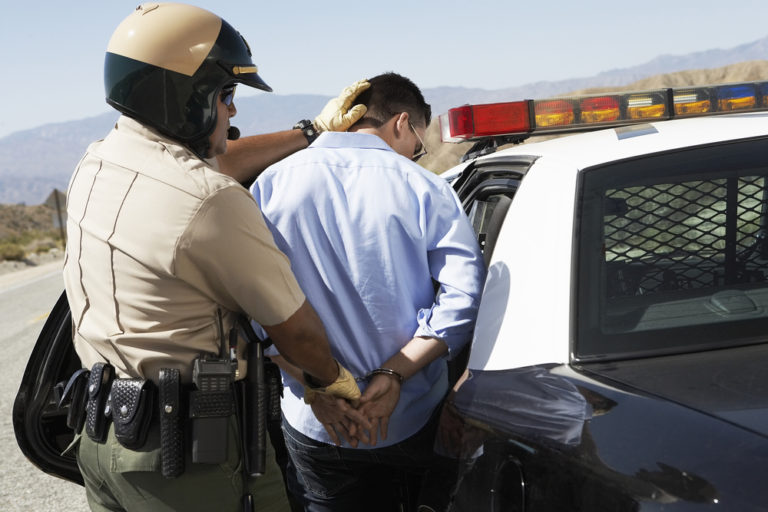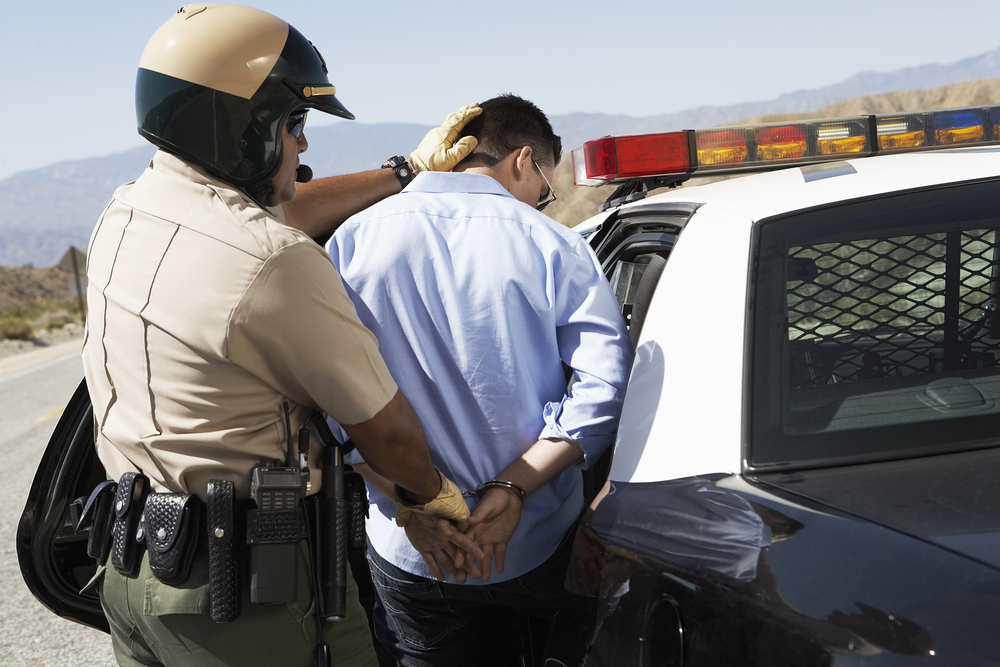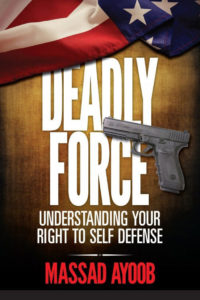

When it comes to concealed carry, remaining completely silent following a defensive gun use may not be the wisest option.
It is common advice among lawyers and judges that when first confronted by the police after a self-defense shooting, you should say nothing. That’s because anything you say “can and will be used against you” in a court of law. That is true, of course. But the fact of the matter is, if you are tried for an alleged criminal act associated with your use of deadly force in self-defense, you are likely going to have to testify in court anyway.
I know, you don’t have a legal requirement to testify, and most if not all criminal defense attorneys would advise against a criminal defendant testifying. But here is the rub: The vast majority of criminal defendants are guilty of a crime, and if they testify, it simply gives the prosecution the opportunity to elicit more information about their criminal act.
In addition, if the attorney reasonably suspects that the defendant did in fact commit the crime, he must not put the defendant on the stand and solicit lies. It is called suborning perjury and that is a crime in itself. So, in the typical criminal case, the defendant remains silent (as is his right) and the prosecution must prove that he is guilty beyond a reasonable doubt. It is the defense attorney’s job to poke holes in the prosecution’s case until the jury has too many doubts to convict. But the roles are reversed in a self-defense case. Let me explain.
Whenever one person shoots another, they have fulfilled the elements of the crime of either murder or assault, depending on whether the person lives or dies. When the police show up, they have “Criminal Law 101” which they learned in the police academy running through their heads. They look at the dead body with holes in it and they look at you holding a gun. They add up these factors and “murder” flashes up on the mental screen. I once asked a police academy instructor what they are teaching recruits about the armed citizen and self-defense law, and he said, “Nothing!”
At this time, there is only one way you may avoid going to jail. That way is to convince the police that there are extenuating circumstances that negate their conclusion of “murder.” But if they don’t know about those extenuating circumstances, you will be arrested. And once arrested, you will remain in jail until you can make bail, or a kind and friendly judge decides to release you. In many jurisdictions, you will be arrested anyway because you fulfilled the legal elements of the crime of murder or attempted murder, regardless of any mitigating circumstances.
The crime of murder encompasses the intentional killing of another human being. Only a defense to that crime will allow the shooter to walk free. If the cops have no information that you acted in legitimate self-defense, you are sure to be arrested.
And, if that isn’t bad enough, in court, when you are on trial for murder and your defense is that you acted in self-defense, you have to admit to the elements of the crime in order to invoke self-defense. In opening arguments, your attorney will tell the jury that you killed that man. All the prosecution has to prove is that you did not kill him in self-defense. If you don’t put on a legitimate case, the jury doesn’t have any choice but to convict you of murder. The burden has shifted to you to prove your act was a legitimate self-defense. How do you do this?
First, don’t act like a guilty man or woman. When the first words out of your mouth are, “I want my lawyer,” you have done a surprisingly good imitation of a street-wise criminal who has some experience in these situations. What is any self-respecting cop supposed to think? Dead body + gun + “I want my lawyer” = murder.
If, on the other hand, the officer hears, “My life was threatened, I had to shoot,” he forms a slightly different conclusion. In addition, if he first learned of the incident through a call you made to 9-1-1, in which you indicated that you were the victim of a robbery (or whatever crime caused you to believe your life was in danger) then he forms a different picture of the call before he even gets there.
If, instead, all he hears is: “Shooting occurred, suspect is still on the scene and armed,” called in by a witness, then you will be perceived immediately as a dangerous, nasty character needing to be dealt with aggressively.
You need to be the reporting party, if it is possible for you to do that safely. Win the race to the phone. Most criminal prosecutions start by playing a 9-1-1 dispatch tape, to set the mood for the jury. In your case, if you report the crime first, the jury gets to hear you telling dispatch, in your own words, that you were just attacked and had to defend yourself.
The 9-1-1 Call

There is another flaw in the advice to never speak to the police. After you are in a self-defense situation, who is going to call the police? Sure, an onlooker who heard the shots or saw the action, may call 9-1-1, but you can’t count on that. No, to best protect yourself, you are going to have to be the one to call the police. Your call is necessary if you want any hope that the legal system will view your act of shooting or killing another person as justified. If you believe you cannot effectively tell the responding officer that you felt your life was in danger, how on earth can you expect to call 9-1-1 and effectively report the same situation?
I can see it now.
Dispatcher: “9-1-1, what is your emergency?”
You: “Ahh, I would rather not say, but I really need the police.”
Dispatcher: “Sir, we are rather busy here at the moment, unless you are reporting a crime in progress, or some other emergency, I am going to hang up.”
You: “Wait. Don’t hang up. Someone has been sho.. er, injured.”
Dispatcher: “What is the nature of the injury?”
You: “He has a hole in his chest, and he is bleeding a lot.”
Dispatcher: “Okay, sir, how did he get the hole in his chest?”
You: “I would rather not say. In fact, could you do me a favor and call my attorney for me?”
Laughable? Sure, but you get the idea. Here is the deal: Society, made up of the very same folks who will be on your jury, expects other members of society to tell the truth to the police, to be good witnesses to crimes in progress, and to help out other members of society when possible. Your actions will be judged against those expectations, and to the standard of a reasonable and prudent person, knowing what you knew, and standing in your shoes. If you don’t believe me, ask any attorney.
Do you think the members of the jury will find it a little odd that instead of telling the police that you shot the guy who was attacking you, you whip out your 5th Amendment Rights “sure to go to jail” wallet card and hand it to the first police officer who asks, “What happened here?” Do you think that the members of the jury would have done the same thing under the same circumstances, or do you think perhaps they might simply tell the police that they were attacked and that man on the ground attacked them?
In Part 2 the author tackles 5th Amendment Rights wallet cards and several other factors to consider when giving a brief statement after a defensive shooting.

Next Step: Get your FREE Printable Target Pack
Enhance your shooting precision with our 62 MOA Targets, perfect for rifles and handguns. Crafted in collaboration with Storm Tactical for accuracy and versatility.
Subscribe to the Gun Digest email newsletter and get your downloadable target pack sent straight to your inbox. Stay updated with the latest firearms info in the industry.

![Best Concealed Carry Guns In 2025 [Field Tested] Wilson Combat EDC X9S 1](https://gundigest.com/wp-content/uploads/Wilson-Combat-EDC-X9S-1-324x160.jpg)


![Best 9mm Carbine: Affordable PCCs [Tested] Ruger Carbine Shooting](https://gundigest.com/wp-content/uploads/Ruger-Carbine-Shooting-100x70.jpg)
![Best AR-15: Top Options Available Today [Field Tested] Harrington and Richardson PSA XM177E2 feature](https://gundigest.com/wp-content/uploads/Harrington-and-Richardson-PSA-XM177E2-feature-100x70.jpg)

You say you were in fear of your life and you want your attorney. That is all! nothing else can help you and anything else will harm you.
Chief Justice of the Supreme Court Robert Jackson said, “any lawyer worth his salt will tell the suspect in no uncertain terms to make no statement to the police under any circumstances”
Perhaps this will explain why you should not talk to the police.
https://www.youtube.com/watch?v=6wXkI4t7nuc
Your advice as an attorney is laughable. All you say is the person threatned my life, I acted to neutrilize the threat, I am very upset now and will cooperate fully with you when my attorney is with me. You are going to jail no matter what, so say little and wait for legal assistance. The cops are NOT your friends. The DA is NOT your friend. yes call 911 explain their was a shooting and have police dispatched. Desscribe your self to the dispatcher. Put your gun away or on the ground and stand clear. When police arrive offer no resistance and be cooperative. That’s it.